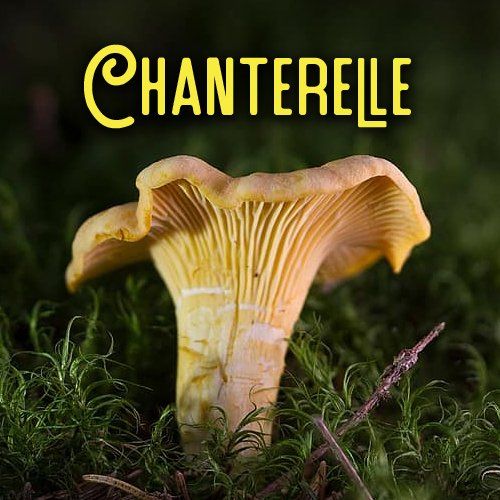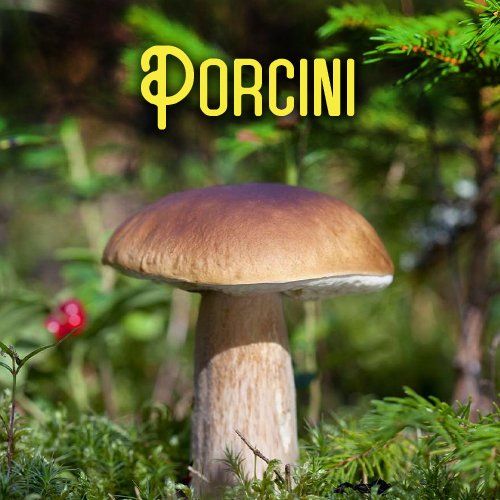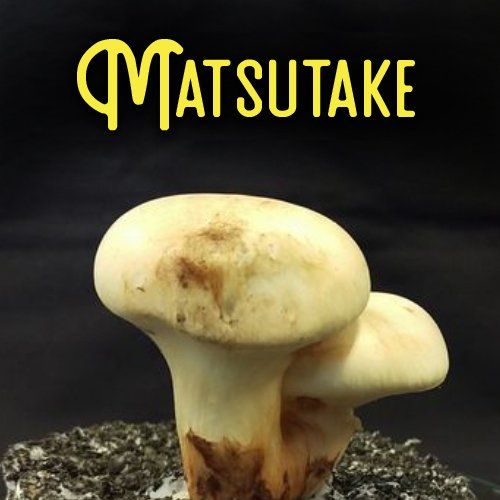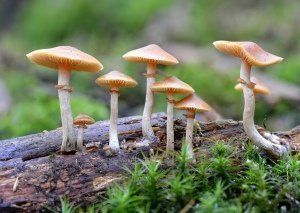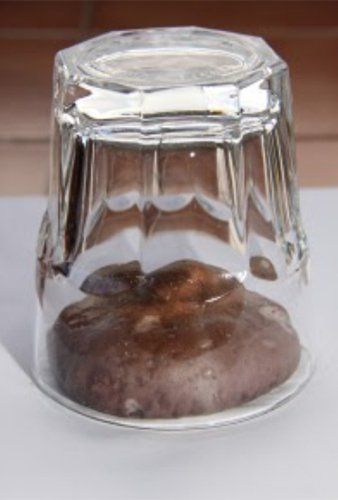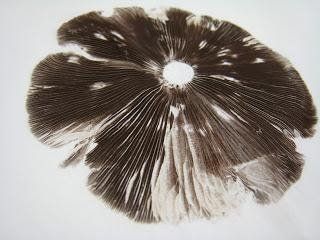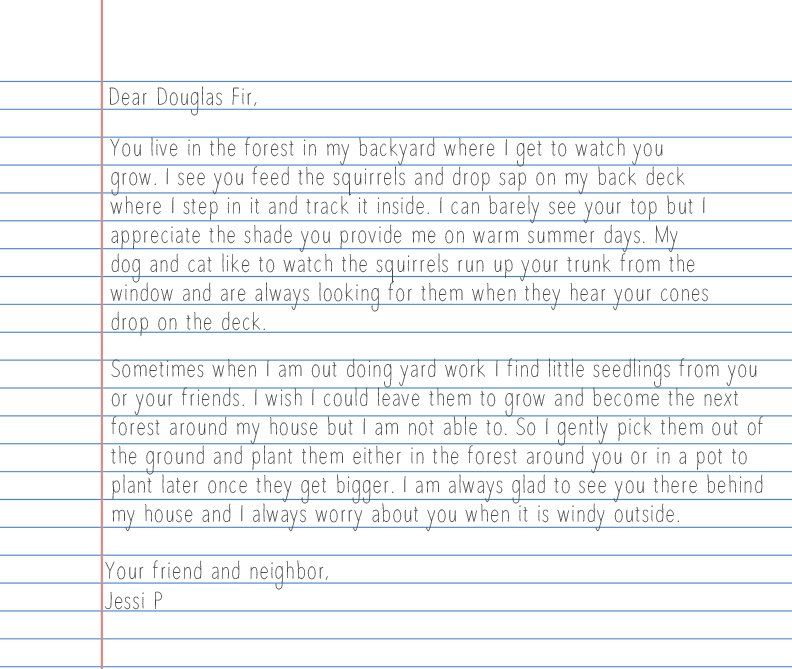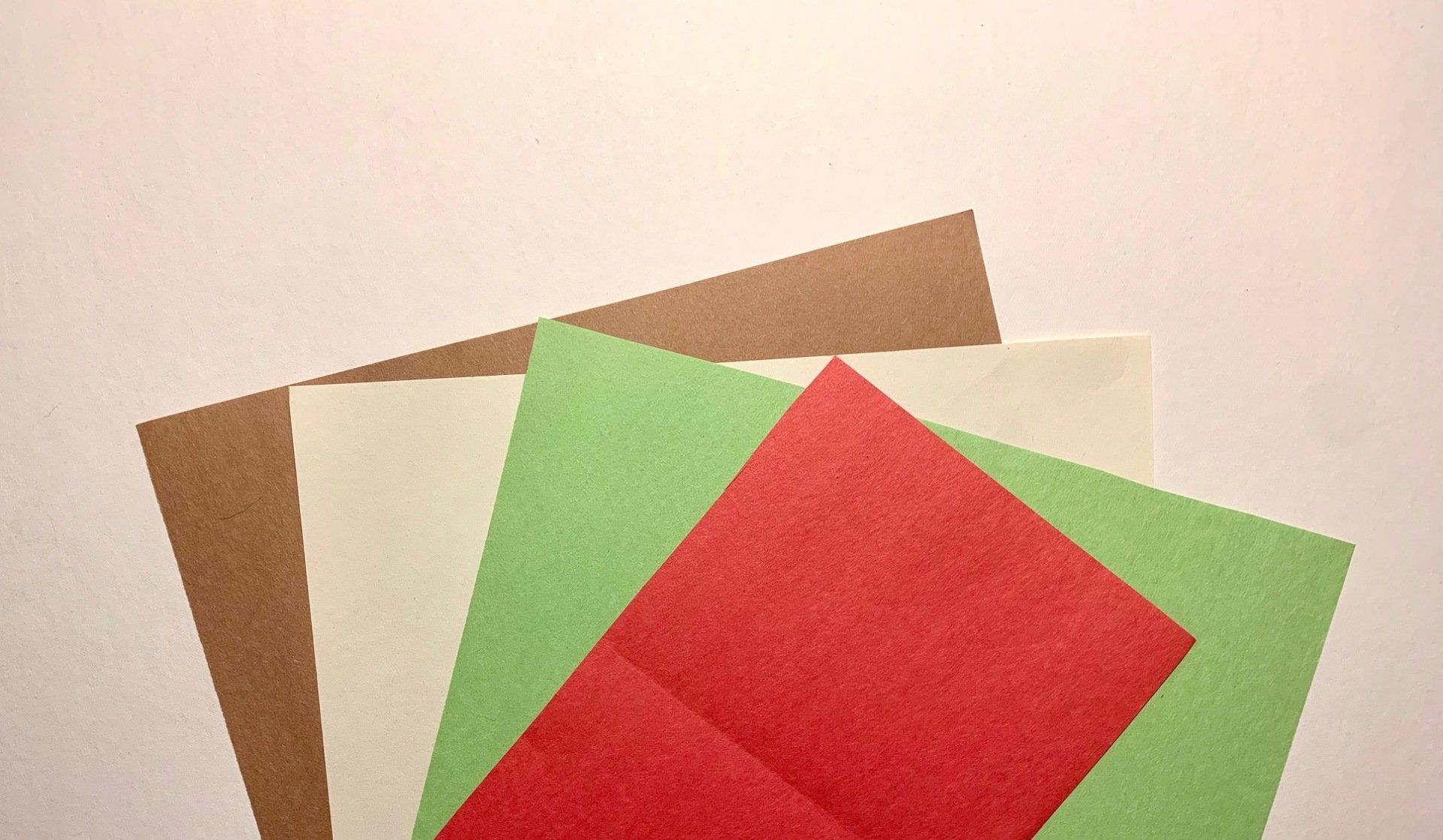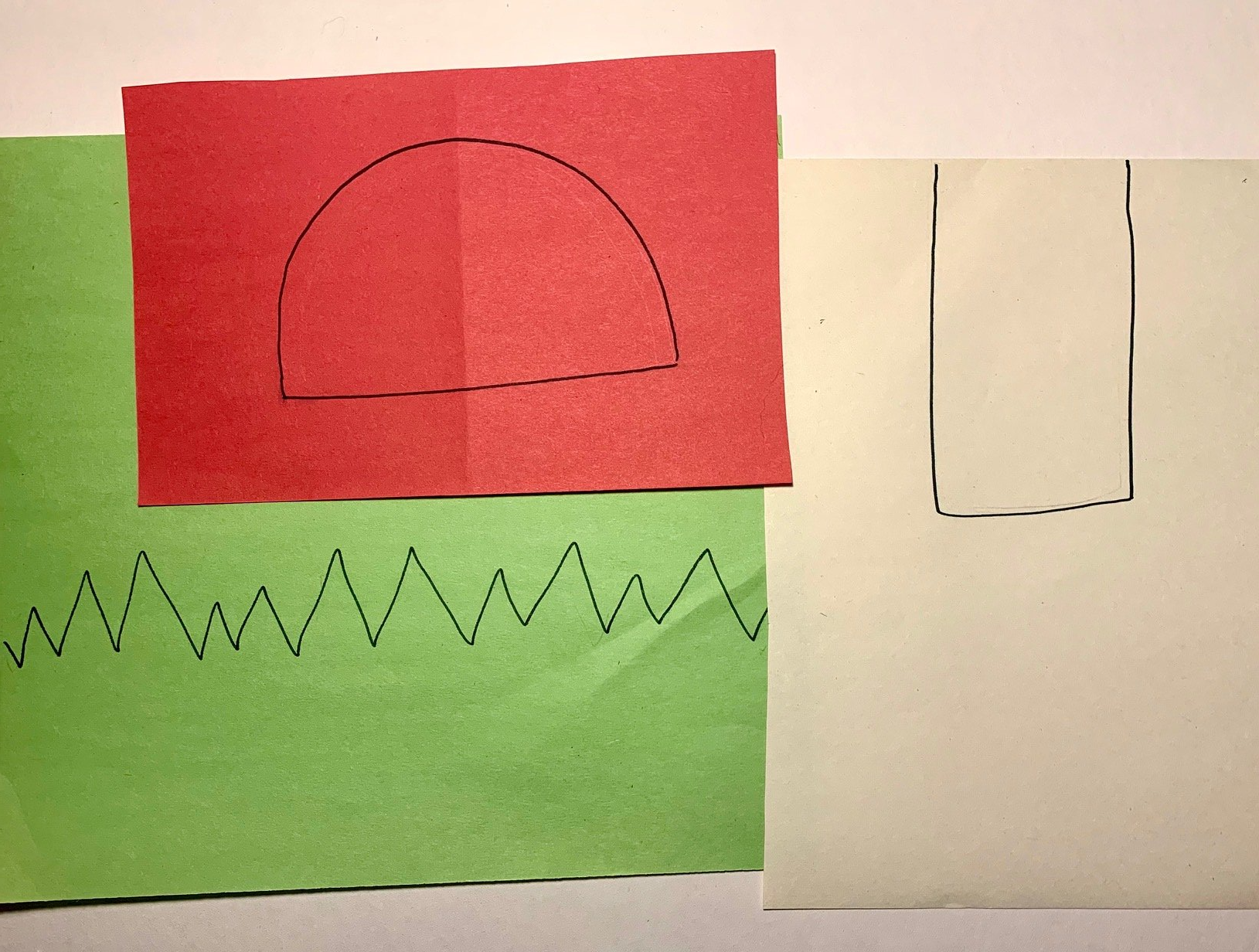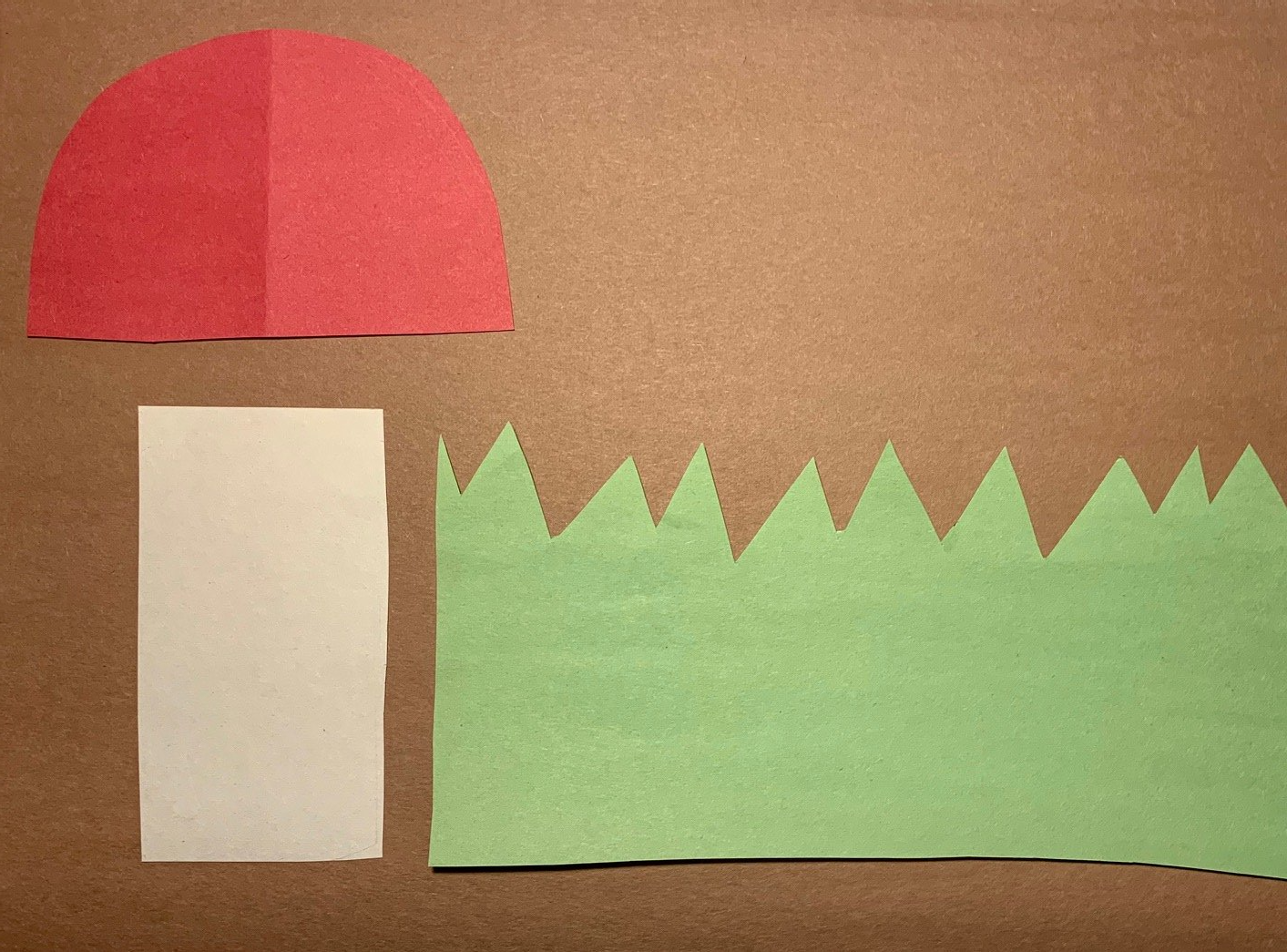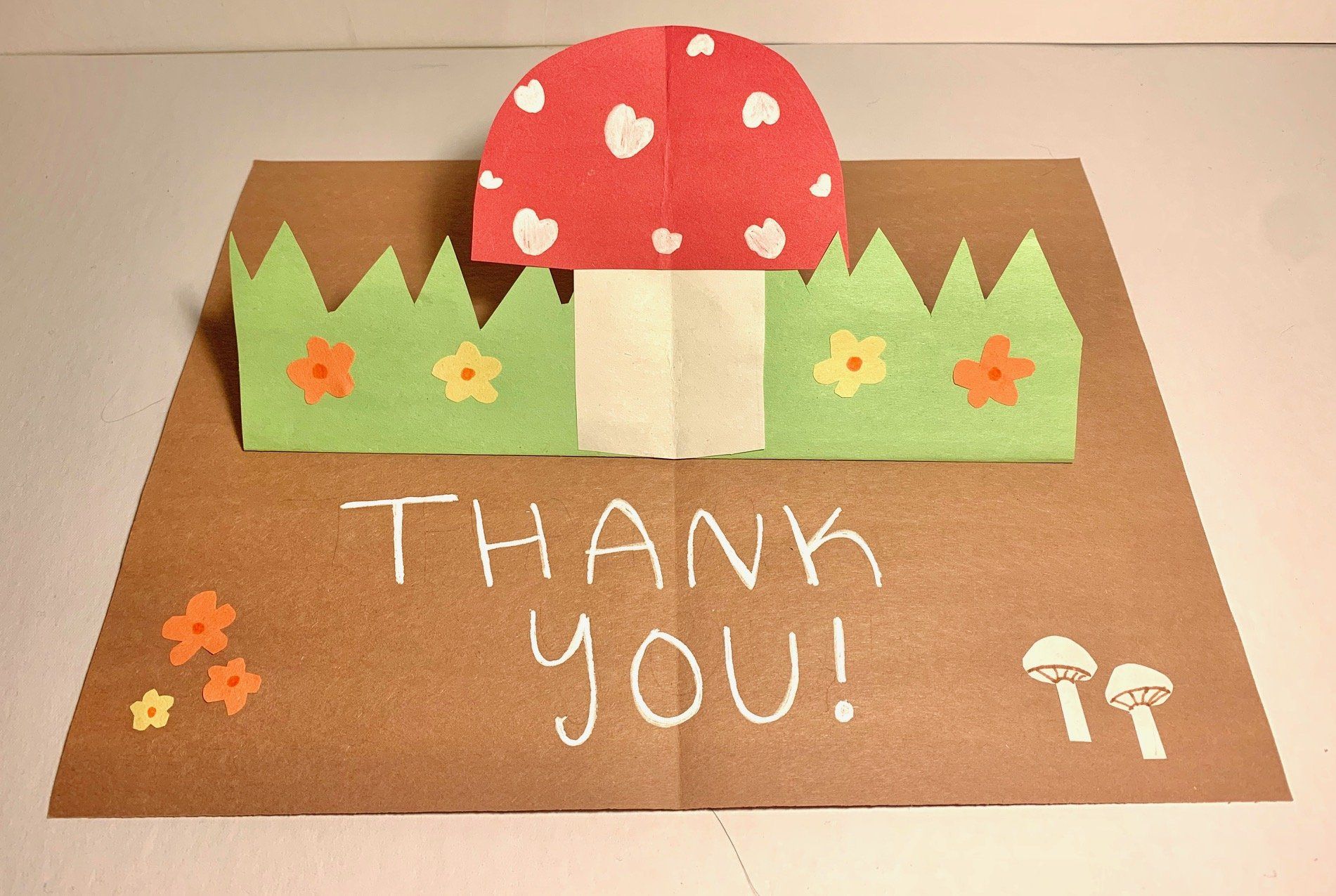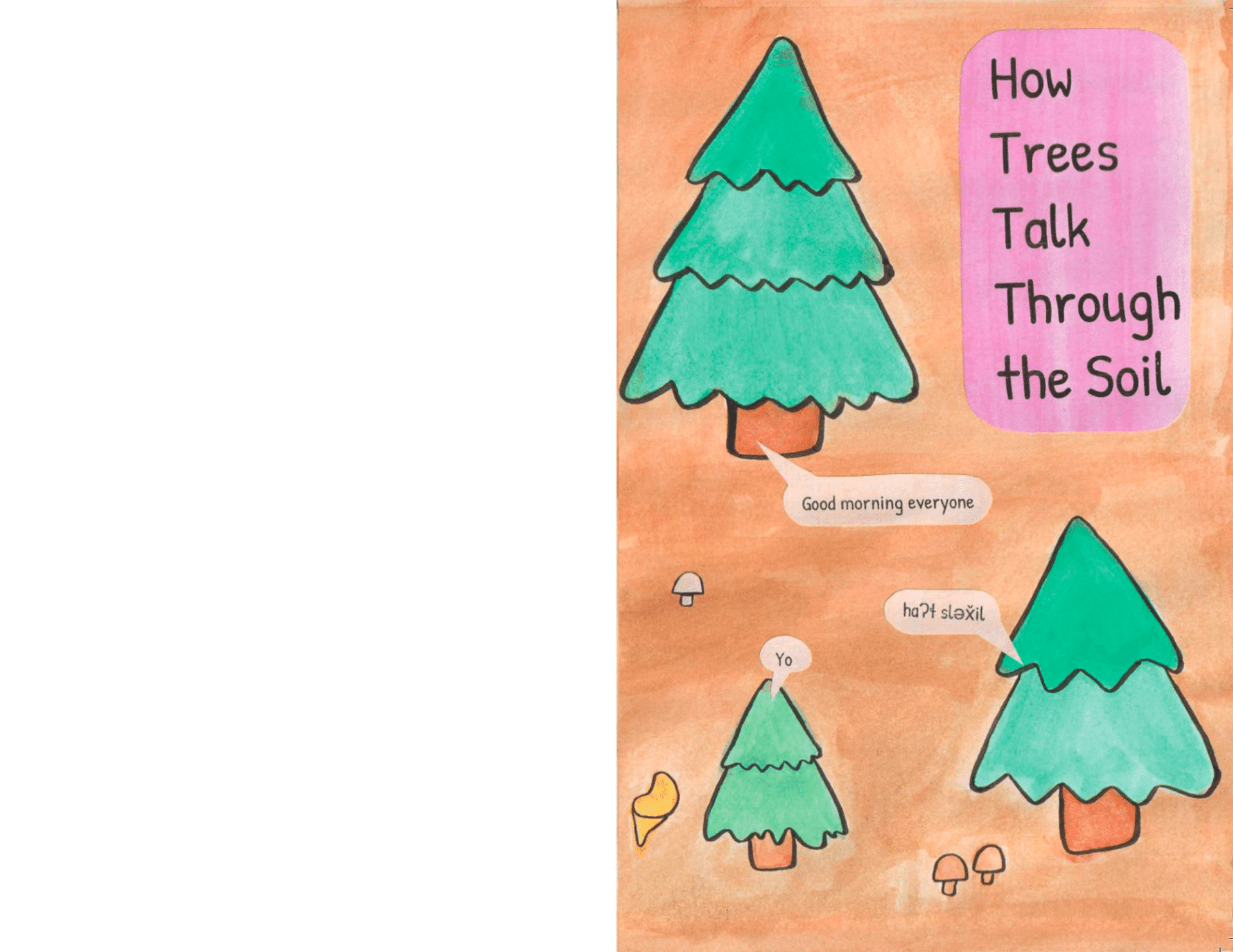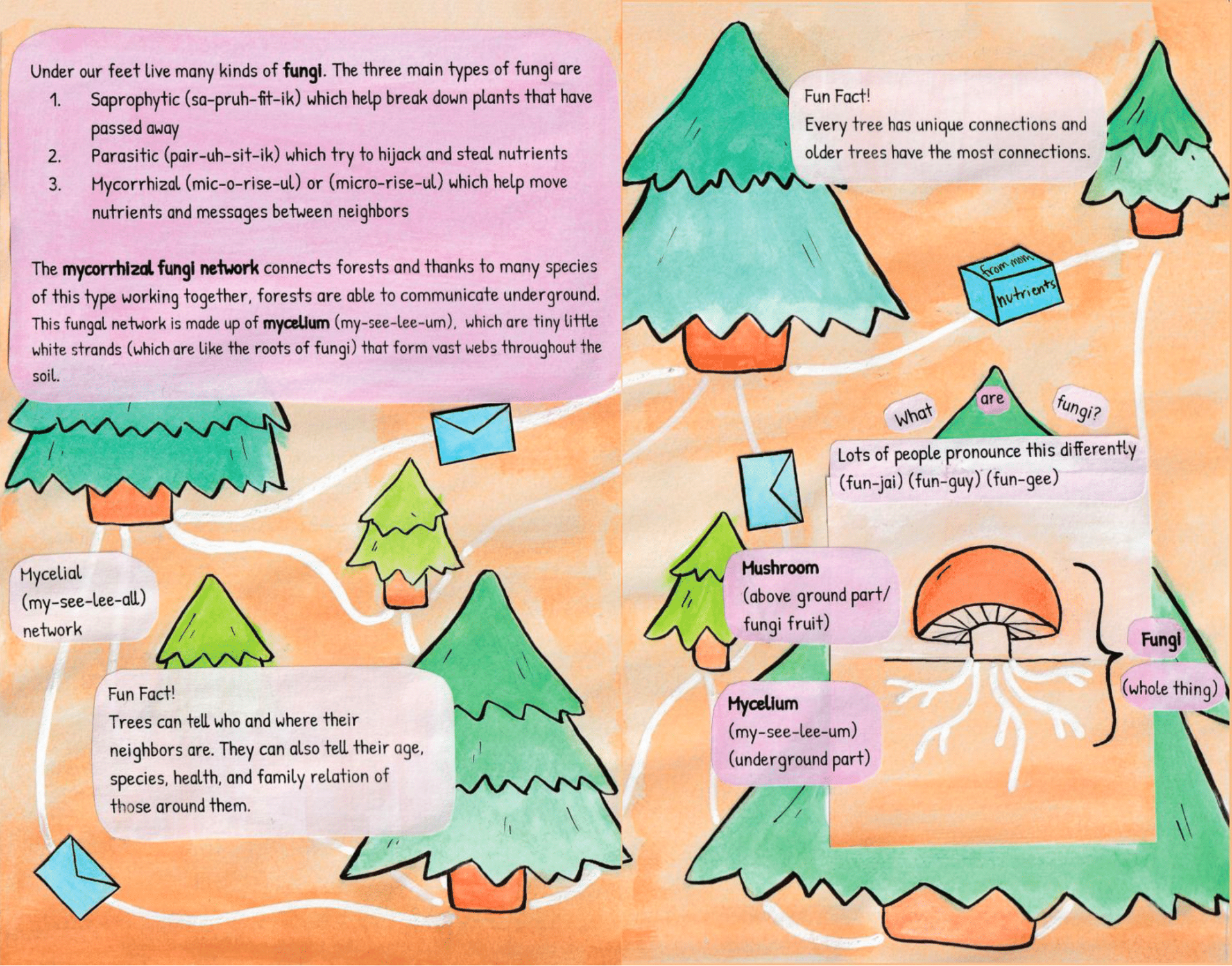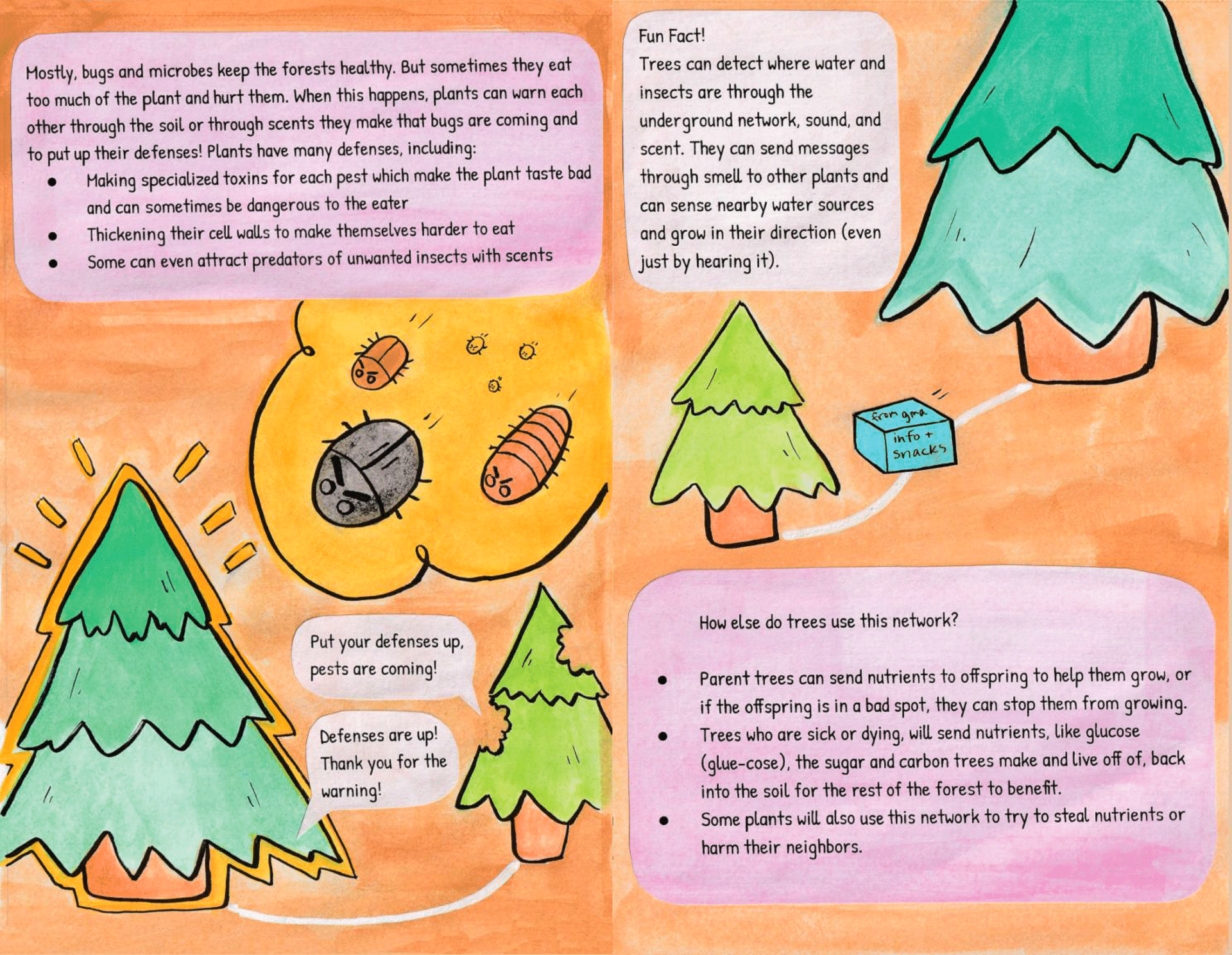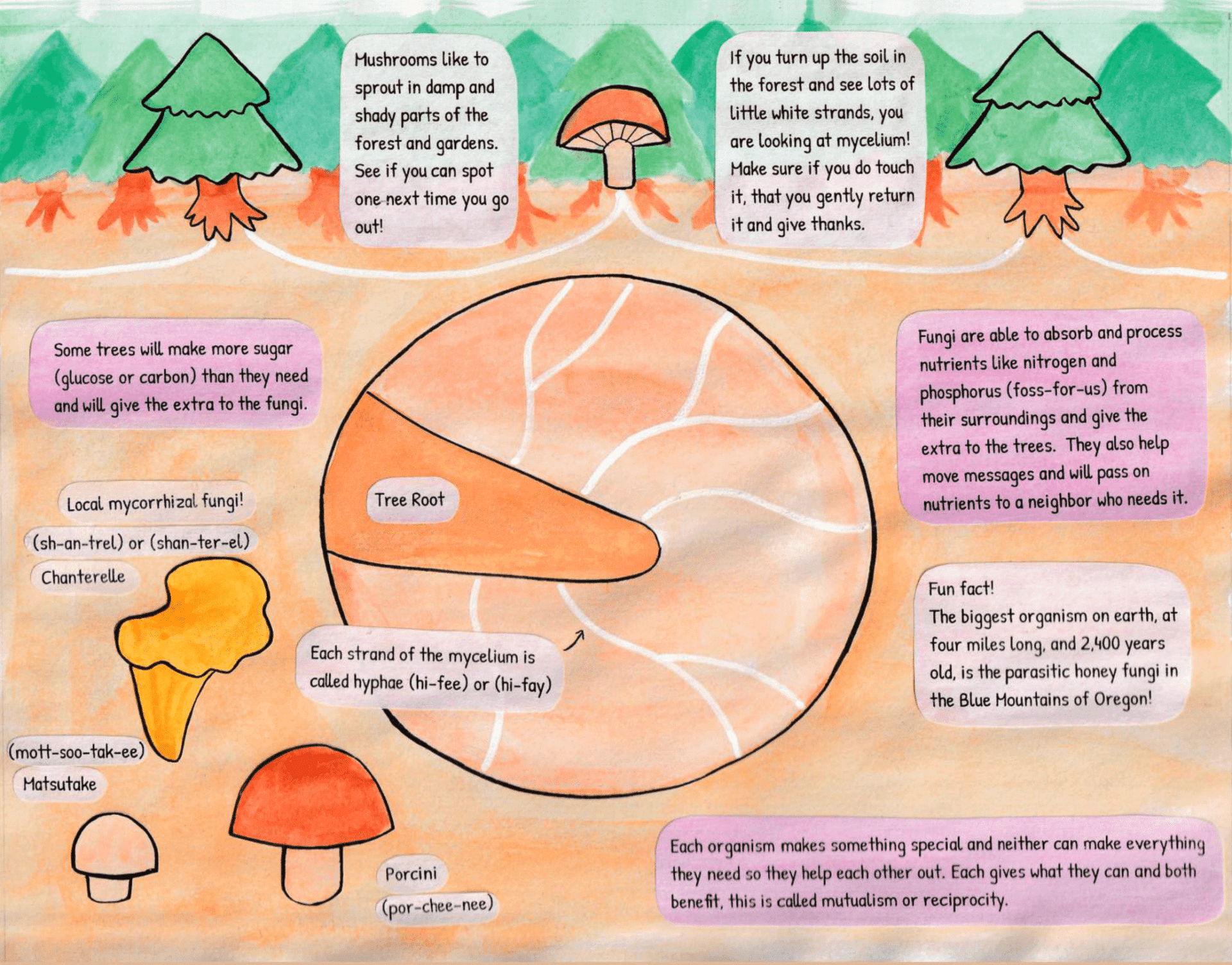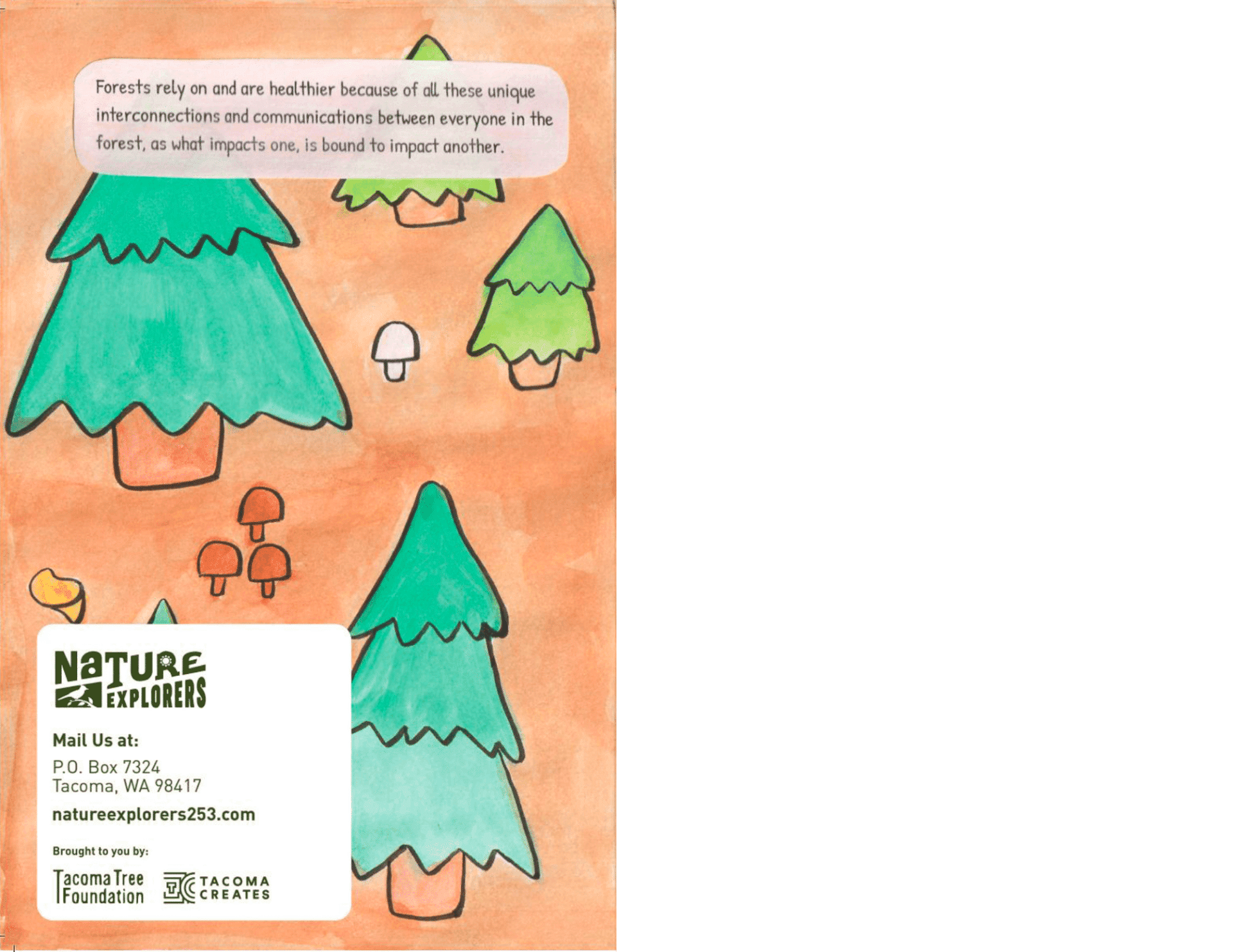Tell a Story for the Trees
Now that we know that trees talk too, what are they saying and thinking? Write a story from a tree’s point of view using one or a few of the questions below (or any you come up with too!). Send us a copy of your story!
- Where does the tree live?
- Forest, yard, right of way, parking lot?
- Who are the tree’s friends?
- Birds, squirrels, other trees, forest animals, mycelium, you?
- Who are not the tree’s friends?
- Invasive plants and bugs like ivy or borer beatle?
- How close are other trees?
- Within talking distance or do the trees have to shout to talk?
Some Mycorrhizal Mushrooms Found in the PNW
shan · tr · el
Likes a wide variety of trees, like the douglas fir, spruce, pine, oak, western hemlock, sitka spruce, aspen, and birch trees.
por · chee · nee
Lives near a wide variety of trees, like the douglas fir, spruce, pine, oak, western hemlock, sitka spruce, aspen, and birch trees.
Check Out These Fungal Blooms
Make a Mushroom Spore Print
Mushrooms have spores, which are super tiny little cells. Theses spores act like seeds and allow fungi to reproduce. They fall from the bottom of the mushroom cap. If you take a spore print, you are able to see lots of them together in a unique design. Here is how to make one!
How to Create a Mushroom Pop Up Card
Check Out Our Zine
We made a zine (mini-magazine) below about how fungi help trees communicate with each other below the soil!
Speaking of Zines...
Learn a couple cool and easy ways to bind your own zine in the videos below.
How to saddle stitch a zine with a stapler.
How to make a thread or yarn binding.
How People Communicate
How Are You Feeling? - Lushootseed Emotions
Courtesy of Puyallup Tribal Languages
I love you: ʔuʔušəbicid čəd
Courtesy of Puyallup Tribal Languages



